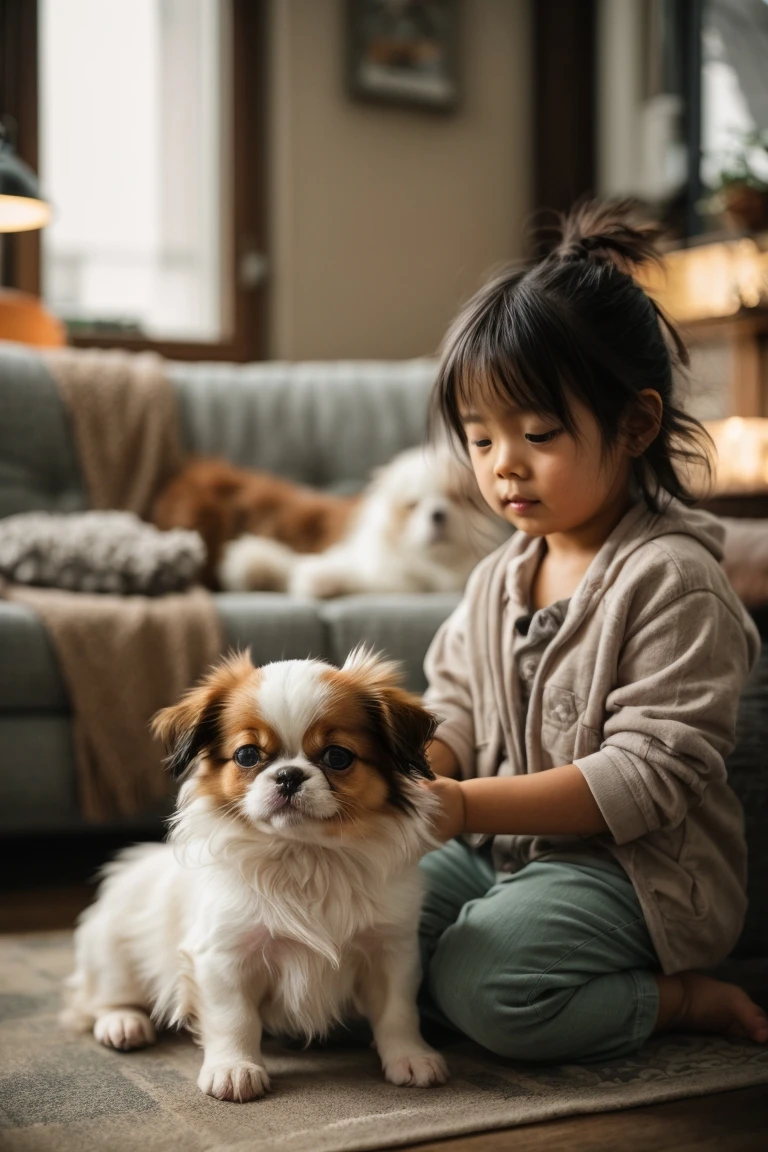Are Japanese Chins Good with Children?

The Japanese Chin is a charming toy breed known for their cat-like behavior. Their small size and playful nature makes them seem like a good fit for families with children. However, there are some important considerations to make before bringing home a Chin puppy or dog to a household with kids. Here's an in-depth look at how well Japanese Chins tend to do with children.
Temperament of Japanese Chins with Children
In general, Japanese Chins have pleasant, affectionate personalities making them good companion dogs. However, it's important to note they were not historically bred to be family pets or child companions. Some key points about their temperament:
- Sensitive nature - Japanese Chins are incredibly sensitive dogs. Loud noises, roughhousing, and toddler antics can startle them.
- Dainty build - Their small size and fragile bone structure makes them vulnerable to injury from grabbing hands or play that's too rough.
- Independent streak - Chins have a cat-like independence. They may not always enjoy cuddling on a child's terms.
- Better with older children - Typically Chins do better with gentle older children rather than rambunctious youngsters under age 6.
Supervision is essential - Chins should never be left unsupervised with very young kids. Their small size puts them at risk for accidental injury.
Bringing Home a Japanese Chin Puppy
If bringing a Chin puppy into a home with children, proper introductory steps are crucial:
- Start socialization early. Safely expose your Chin pup to well-behaved children during the prime socialization window between 8-12 weeks old. Have kids give them treats to build a positive association.
- Teach your children appropriate petting and handling. Demonstrate petting gently on the chest rather than patting on top of the head. Show them how to properly pick up and hold the puppy.
- Set household rules from the start. Make areas like their crate and toys off-limits to children. Set boundaries for when kids can or can't interact with the puppy.
- Always supervise interactions at first. Don't allow young children to be alone unsupervised with your Chin puppy, even for brief moments.
- Encourage calm behavior. Reward your Chin puppy for remaining relaxed and tolerant of your children's presence and handling. redirect any nippy or hyper behavior.
Adopting an Adult Chin
Bringing home an adult Japanese Chin? Take these steps:
- Ask the breeder or rescue about the Chin's history with children. Look for one with previous positive exposure to kids.
- Arrange introductory meetings on neutral ground. Observe how the adult Chin interacts with your children before finalizing the adoption.
- Make the adjustment gradual. Allow the Chin to slowly adjust to your home's sights and sounds at their own pace before interacting with the kids.
- Establish house rules regarding the Chin. Clarify when kids can or cannot touch, pick up or bother the new family dog.
- Consider a baby gate. Use an indoor gate to give your new Chin a quiet place away from the kids when needed. Never leave children unattended with an unfamiliar adult dog.
With preparation, supervision, training and understanding of the breed's sensitive nature, Japanese Chins can adapt to a home with children and make loving family companions. Take the proper steps and your Chin can thrive as part of your family.